Though I am slightly loath to admit it, I have been rewatching Grimm. It is dark and wet in Portland, as it always is at the start of the year—January is just ever so January—and a somewhat ridiculous procedural show about a fairy tale cop feels like just the thing.
It’s also weirdly comforting, which is another thing I am reluctant to confess. I do not generally find cop shows comforting, and the very idea of a fairy tale cop is gently hilarious to anyone who grew up on fairy tales, in which there are many things, but not usually cops. There are wolves and trolls and princes and witches and all manner of creatures, but at best there might be some sort of hapless authority figure who gets turned into a bear or something. (I’m using a loose definition of fairy tales here.)
But in each episode of Grimm, at least in the early and very episodic seasons, a fairy tale cop (who is also a regular cop) solves a crime generally committed by a person who is also a magical creature, of which Portland has a surprising abundance. (Bird people! Wolf people! Cat people! Spider people!) Sometimes the magical creature-people are misunderstood, sometimes they’re vicious, sometimes they’re just ordinary guys who make clocks and offer the fairy tale cop a beer. There is magic, and mundanity—and there is closure.
Obviously you can get closure, if that’s all you’re after, from any number of procedural shows, some of which rank much higher on the competence-porn index. (I recommend Elementary, as always.) But procedural + fairy tales + an occasionally accurate portrayal of the city in which one lives is a rare mix, and it is one so addictive to me, right now, that I had to ask why. What makes this alchemical blend so compelling? What makes it comforting to me in this moment? What makes any story comforting?
There are common elements to a lot of lists about comfort stories—happy endings, warm fuzzies, sweeping love affairs, lack of strife, familiarity, escapism—and I’ve written before about how those don’t often say “comfort” to me. When I want to escape and be comforted, I’ve sought out a specific kind of reassurance generally found in stories about people who are having a very bad time, a time much worse than anything I’ll ever have to deal with.
But it turns out that at a moment when my own life is full of uncertainty and anxiety, maybe I do want a certain kind of comfort. Not escape to somewhere strange, but a visit to somewhere familiar; not a story with a happy ending, necessarily, but one that offers both closure and change.
What I want is to be reminded that things can be different than they are right now.
The Night Circus, as it turns out, was also perfect for this. (Sometimes you really do save a book until exactly the moment when you need it.) I knew the book was about a circus and a love affair. I did not know it was also built out of other things I adore, among them the scent magic of Black Phoenix Alchemy Lab, the connection of a chosen and created family, and the transportive delights of immersive theater like Punchdrunk’s Sleep No More. There are countless other little signposts in this book to things that I love, from snow queens to labyrinths to Labyrinth to apple orchards, and, most of all, to the way a shared love can build a community. The circus is the circus; the people who love the circus make their own magical world, too. They are part of it. They help make it what it is.
Buy the Book
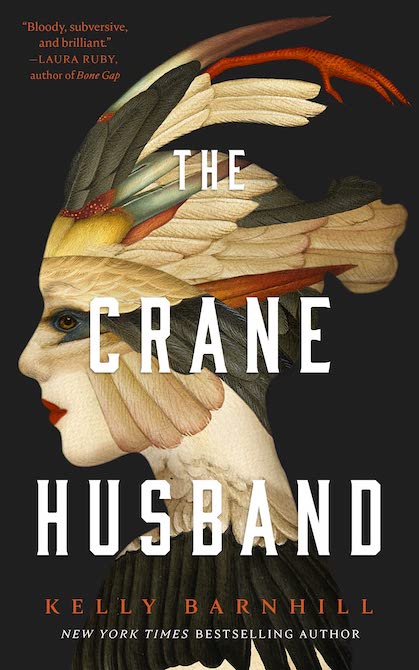

The Crane Husband
The comfort comes from remembering that all these things are still out there. All these things will be possible again someday. Gathering with fellow fans. Opening every drawer in the McKittrick Theater or following the actors of Sleep No More up and down the stairs. Seeing a small immersive theater production or meeting other BPAL fans at a con or finding a magical circus—or something like it—in a field outside the city.
A lot of things I would do in a “normal” world aren’t accessible to me right now, from going to crowded opening night movies to going to book events to going to cons. I know I’m not alone in this. And it turns out what comforts me is revisiting those things in a story: a circus, a concert, an epic journey, a chance meeting in a strange bar or a card reading in a coffee shop. What comforts me is watching the characters in Grimm traipse all over Portland—Portland of a decade ago, Portland when I might just wander into these bars and venues and coffee shops (though probably not the warehouses and caves) and catch some mysterious happening. It’s the Portland I used to visit, rather than the one I live in now. It’s still damp and raining. But in that past, more of us can go wherever we want, surround ourselves with strangers, find comfort in community and catharsis in unexpected places.
Comfort looks different to everyone, and feels different, too. Sometimes you want a hug, sometimes you want to slap anyone who gets near you. Sometimes you want epic drama and sometimes you just want a story in which a hyper-capitalist dystopian future (or present) hasn’t even been dreamt up yet. Comfort can, to me, feel too easy, like something to be wary of: Sometimes it’s hard to let go of all the other things we could be paying attention to, all the horrors happening while we’re comforting ourselves in pages.
But you can’t see everything all the time, or be aware of everything all the time, or catch every single bit of heartbreaking news. You have to rest, physically and mentally and emotionally. When you need that rest, maybe ask yourself: What does comfort look like to me? What book (or show, or movie) tells the story I need to hear right now? What promises do I want it to make for me? What do I need to be reminded of?
Books can open doors, but they can also close them, softly and firmly, when you need to leave the world outside for a little while.
Molly Templeton lives and writes in Oregon, and spends as much time as possible in the woods. Sometimes she talks about books on Twitter.


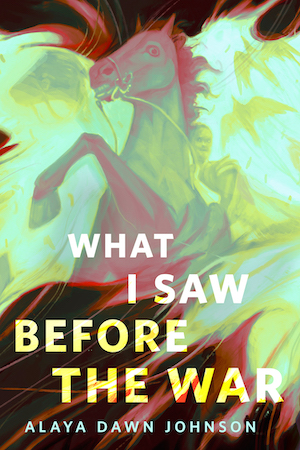
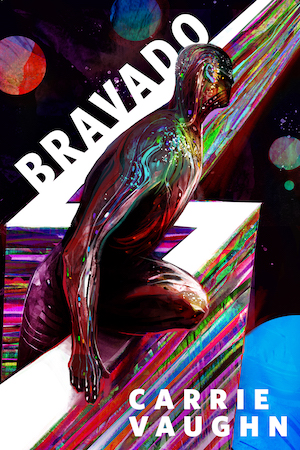







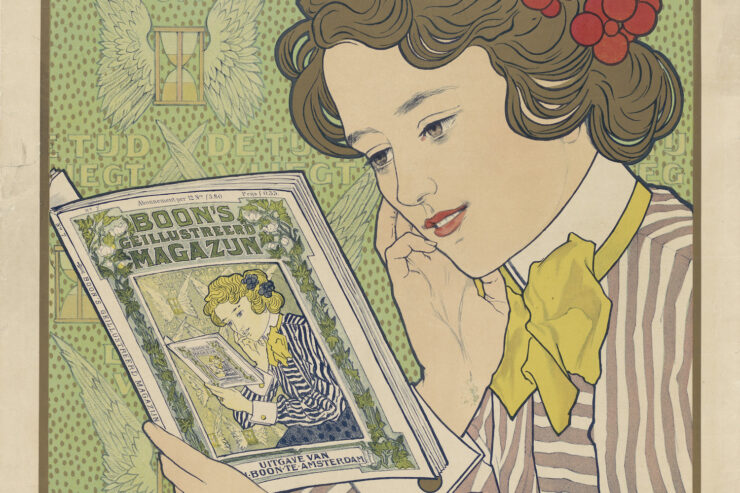
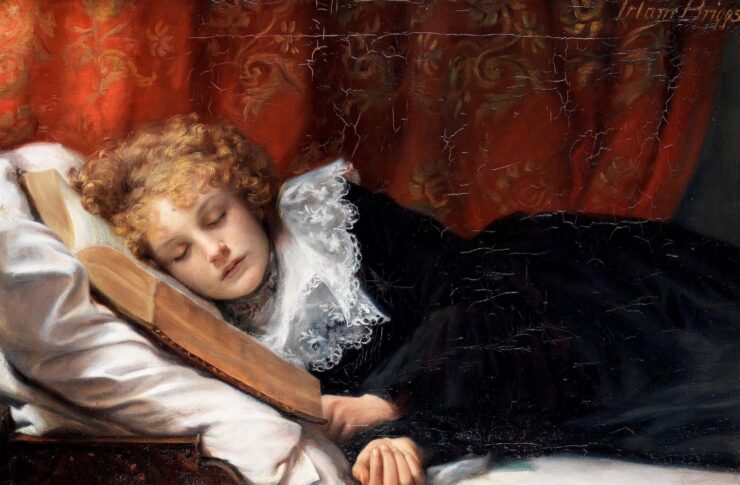


My typical go to comfort book is Summers at Castle Auburn, and I think it’s partially because (while some dark things happen, and it’s the kind of book where as I got older I noticed a little more of the subtext than I did in high school), it’s the kind of book where people get soft landings. Eventually they have their happy endings, there are a few nice romances that aren’t over the top dramatic, and basically people are able to be their best selves.
I’ve also realized that most of the fanfic I write is basically that – sure, there’s all sorts of angst/drama, but I realized a lot it really is just giving the characters a soft landing and building up relationships/working through grief or trauma or what have you, haha. I realized at one point most of my stuff was just characters…talking. (It’s not a good story haha).
Criminal Minds is a comforting show for me. Which feels a little weird since terrible things happen in every episode. But the central premise of the show is that the terrible things can be explained and understood and that understanding means the people doing terrible things can be stopped.
GRIMM was a great show with weird blips like switching two characters’ roles, just because, and it was given a finale to close loose ends. Monroe and Rosalee were so charming that Nick and Eve’s lack of chemistry as characters kept the show popular with me.
I’m not a comfort rewatcher, but I tend toward TV documentary style shows about archeology and exploring wrecks under the sea. Also, reading paranormal cozies.
I read (and re-read) Katherine Addison’s The Goblin Emperor because it comforts me to think that someone can become the best possible ruler by being kind and decent.
Sometimes things really have to feel true enough. Happy endings depending on conditions which you viscerally know are fake tend to be deeply frustrating when you’re existing in a middle of an arc, where you desperately want there to be a happy ending, but it’s hard to imagine how it could exist given the current conditions and realities – you need something that says yes, this thing you are going through can end *well* in some way.
Oddly, Corrie Ten Boom’s “The Hiding Place” was extremely comforting to me last year. Truly horrific situations in so many, many ways… and yet some (not all, but some) people can still keep trying, even if they do not have the power to overthrow or to fix the system – they can still make *some* positive difference in the lives of the people around them.
I mean, it being nonfiction was helpful as well: even if some details are changed, they really did do basically this at this time. And a middle-aged female nerd (watchmaker, I’m assuming she’s a nerd) jolting along cobblestones on an ancient bicycle to negotiate for the resources to save lives: they exist and have existed and we can be them! Or her sister, finding and making beauty, somehow, even in prison with extremely limited resources. But we don’t get this sort of protagonist/hero often, so it is refreshing that it not only exists, but is true!
I also loved Grimm, a very clever show. Often, my comfort comes from reading about other folks in uncomfortable situations.
I just looked over my comfort reads and distilled the following criteria:
(1) kindness
(2) some humor (kind humor, not, say, Roald Dahl)
(3) feminism—not soap-box, but author’s worldview as seen in depiction and treatment of characters
(4) writing good enough to sustain re-reads
(5) satisfying and not depressing ending
(6) there can be loss or some tragedy, but no horror and no up-close depictions of cruelty
And yes, The Goblin Emperor is on my list. And A Civil Campaign, and Remnant Population, and Od Magic, and The Wee Free Men, and a bunch of children’s fantasies: Island of the Aunts, The Dragon with the Chocolate Heart. Plus several non-genre novels written for adults or for children.
I also re-read The Goblin Emperor for comfort.
I lived in Portland while Grimm was being filmed, and really enjoyed how it showcased the city. I once walked past a pale yellow VW parked at the curb, and almost looked around for Mitchell. ;-)
Mysteries and romances are often comforting because they wrap things up. Disorder becomes order. Sue Grafton wrote essentially the same book over & over again, from A to Y, and people kept on reading them.
For me, going back to CJ Cherryh’s Chanur series is my main comfort read(s), though Dragonsinger is a really comfortable read as well.
Legends and Lattes went on my list this year. It builds a happy found family very well.
I’d put the first two Barry Hughart books on that list too: Number Ten Ox and Master Li and the constellation of characters who joint them for a while, then leave, are comforting in a different way: that sometimes the pain of losing someone is greatly offset by the joy of having had them at all.
I have a number of others that fall into that category: Babel-17, all three of the Anthony Villiers novels (though that’s partly for the narration, which is practically a character itself), the Nero Wolfe novels and stories (justice is done, the characters are placed in a difficult/humorous situation but they handle it well). Oh, and Gahan Wilson’s Everybody’s Favorite Duck, which lovingly refers to Sherlock Holmes, Nero Wolfe, Fu Manchu, Famtomas, and Disneyland, and also manages in prose to evoke Wilson’s famously funny and horrifying cartoons.
I may think of more later but all those definitely go in the list.